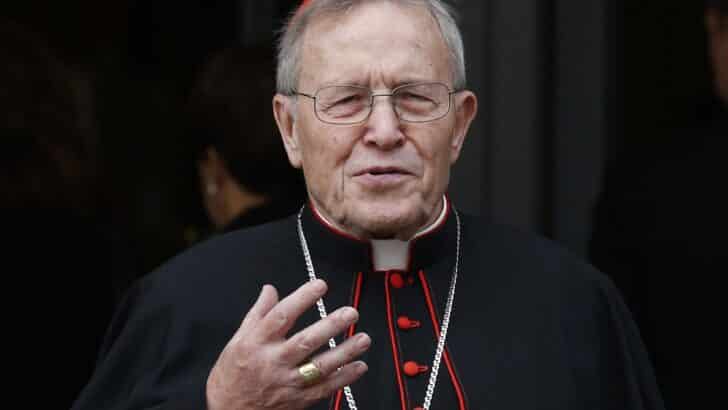The German Cardinal Walter Kasper is in favour of a women’s diaconate in the Catholic Church – and believes further reforms are necessary. “In my personal opinion, opening up the permanent diaconate to women has good theological arguments in its favour and would be a sensible pastoral step,” writes the 92-year-old in his autobiography.
“Women and men have the same dignity before God and must therefore be recognised with their own charisms,” says Kasper. In this respect, some progress has been made in recent decades, but much remains to be done. The book “Der Wahrheit auf der Spur” will be published by Herder-Verlag on 10 June.
Reserved for men
Initiatives by reform-oriented Catholics, several Catholic women’s organisations and the Central Committee of German Catholics (ZdK) have been calling for years for all ministries and offices in the Catholic Church to be opened up to women. Until now, the offices of deacon, priest and bishop, which are conferred by ordination, have been reserved for men. Deacons may baptise, marry, bury and preach, but not preside at mass. Only priests are allowed to do this.
The position of women in the Catholic Church has now “become a mega issue”, emphasises the Rome-based cardinal and former bishop of Rottenburg-Stuttgart. There are “many offices with leadership responsibility in the church that do not require sacramental authorisation, which women can also be entrusted with”, says Kasper.
“The age of clericalism is over”
The cardinal also emphasised that a new, “more fraternal” culture is needed in the Church in the relationship between ministers and Catholic laypeople. “We will continue to need good bishops and priests in the future, but in a synodal church, the time of clericalism and unauthorised decisions by bishops is over,” wrote Kasper. “The laity want and should be heard and they can also expect accountability from the bishops and priests.”
Kasper also expects the church to become smaller. In a less religious environment, we will “perhaps soon be a diaspora church” and “return to the situation of the early church”. This does not frighten him. Kasper emphasised: “The early church was not a holy remnant that some people dream of today, it was a holy beginning from which our church has grown like a small mustard seed into a large tree that provides shade to the furthest corners of the earth.”
“New momentum” from the global South
New, forward-looking developments often come from small but determined groups. “This could, as many attentive observers predict, also be the case when the young, often small but lively churches of the southern hemisphere bring new vigour to the Church and soon make us Europeans look old,” writes Kasper. “Without conversion, prayer and repentance, no matter how well-intentioned the reforms, they have no future.”


